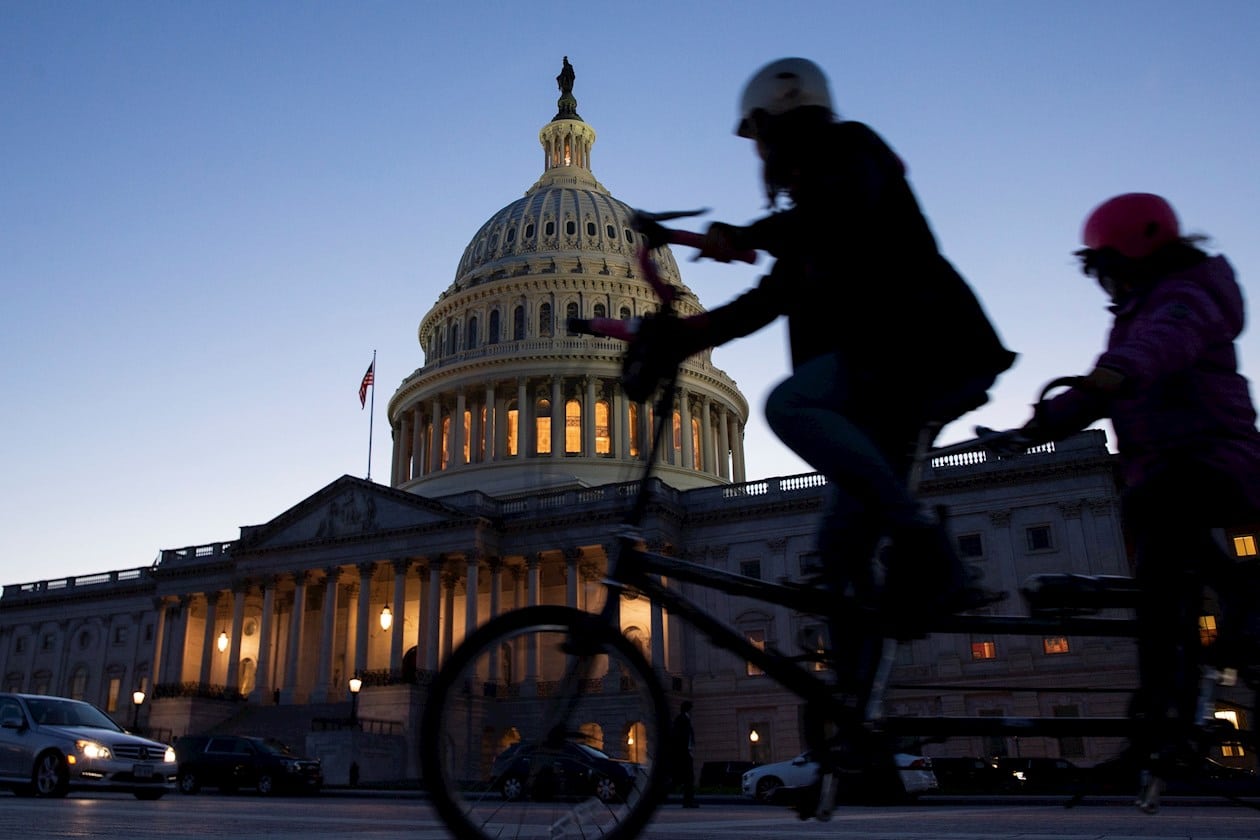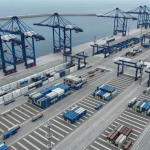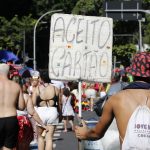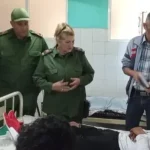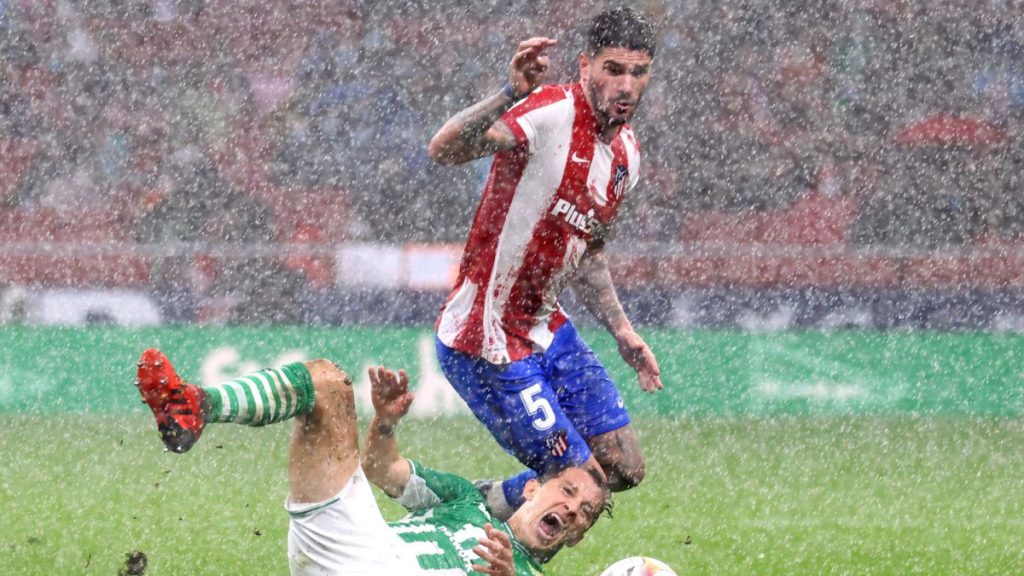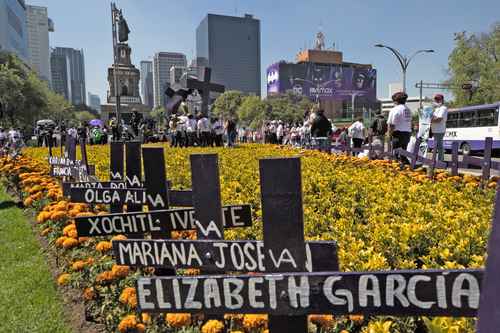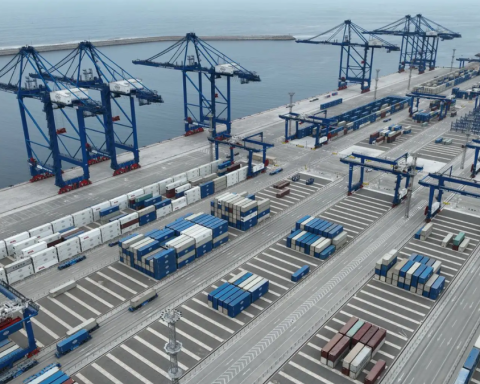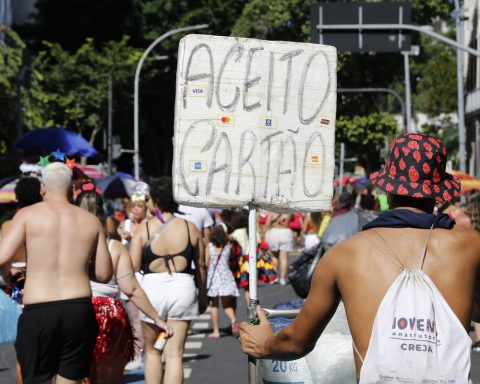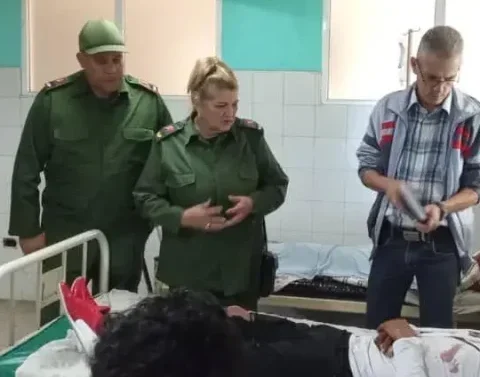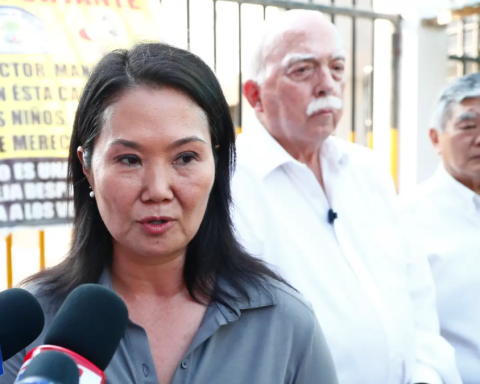The approval of the Renacer Law in the United States Congress will have “substantial implications” for Nicaragua, “from any angle that is seen,” warns the political scientist Manuel Orozco, analyst of the Inter-American Dialogue, since this law “tries to respond in an almost symmetrical way” to the abuses of power by the Daniel Ortega regime and its effects will be seen immediately after the November 7 vote.
The legislative initiative – which must be signed by the US president, Joe Biden, to be put into effect – toughens sanctions against officials of the Nicaraguan regime, improves the audit of the financing of international organizations, evaluates Russian interference in Nicaragua, and asks to review Nicaragua’s participation in the Free Trade Agreement between the United States, the Dominican Republic and Central America (DR-Cafta).
The political scientist values “it is very possible ”that lPresident Biden’s signature is made prior to the voting and “The immediate response will be sanctions against Nicaragua, especially those individuals who have been participating in the design of the (electoral) fraud and in the execution of the trials against the opposition leaders who are imprisoned at this time ”. Later they will assess the role of Nicaragua in Cafta.
During this interview that was broadcast on the Esta Noche program, Orozco points out that the review of Nicaragua’s participation in the Cafta “is not a formality.” He believes that there is “a real concern” in the Biden administration that its trading partners respect the exercise of the rule of law and the possibility that Nicaragua may be suspended from the free trade agreement “is quite realistic.”
What are the main aspects of this Renacer Law that was approved this Wednesday, and how does it differ from other measures taken by the United States in the face of the crisis in Nicaragua and the Ortega-Murillo regime?
There are two aspects. The first is strictly diplomatic, which gives the Executive the green light to implement foreign policy measures related to the absence of democracy in Nicaragua, and the second element consists of at least nine pressure mechanisms towards Nicaragua that can contribute to a transition. politics of the country. The big difference is that this law has much more fang than the Nica Act, it addresses issues that were not previously touched, such as what has to do with Cafta, improving the audit of the financing of international organizations such as the Monetary Fund, the IDB, the World Bank; as well as evaluating and evaluating the role of Russian interference in Nicaragua and; It is very important to introduce the issue of corruption on the part of public officials as well as people attached to the circle of power, including the Ortega-Murillo family, in legislation that already exists on corruption of related persons in Central America. So, the law is much broader, its scope basically covers the entire ecosystem that has to do with the weakening of democratic institutions, and it also represents a strong impact diplomatically because of the message that is being given to Nicaragua before the elections.
This law only needs the signature of President Joe Biden, when could that signature be given and after that what would be missing to see the implementation?
The signature is very likely to take place before the elections and the immediate response will be sanctions against those individuals who have been participating in the design of the fraud and in the execution of the trials and false accusations against the leaders who are imprisoned in this moment. Subsequently, the assessment of the role of Nicaragua in Cafta begins, as well as the interference of Russia. The United States has already carried out investigations on the role of corruption that exists within the regime in terms of economic favors, its presence and extension in Nicaraguan companies that are benefited by the political patronage of the regime; So all of this is going to be part of the work that is going to be done in the course of the remainder of this year.
This law contemplates various measures on the scrutiny of multilateral credit organizations such as the IMF, the World Bank, the Inter-American Development Bank, but which of them would have priority in their execution?
I believe that at this moment the priority is the International Monetary Fund that has given financing to Nicaragua in the last two years, at least it has financed 5% of its public spending, that is, Nicaragua has borrowed more than $ 400 million with the IMF and there has been no accountability regarding the type of expense management of those loans. So, one of the first priorities of this Government is to determine that the Monetary Fund has disbursed the money and has been spent on the activities that Nicaragua said it was committed to, obviously the IMF knows that there is little accountability and that in fact there are contradictions on how the money has been spent. So the implications have to do with the possibility that (the Biden Administration) will have of restricting any type of international cooperation in the future, especially in 2022.
What implications could we see with the approval of this law that comes just four days after the vote in Nicaragua?
The main implication is at the diplomatic level, it gives a boost to the Nicaraguan, as the latest CID Gallup poll shows that only 10% of Nicaraguans favor Daniel Ortega in this election and 70% would be voting for the candidates who are in jail, so this law is basically voting for Nicaraguans through its instruments of international pressure. It is a blow to the Nicaraguan government because it is explicitly being singled out as undemocratic, but also corrupt, and this somehow gives Nicaraguans confidence and some kind of moral encouragement to a population that has been practically a victim of the evil of the regime.
This law also authorizes the Biden Administration to carry out diplomatic negotiations with Canada, the European Union and other countries in Latin America and the Caribbean, to impose selective sanctions against citizens who obstruct Nicaraguan elections, how would this provision then materialize after from November 7?
With institutional sanctions and sanctions to those individuals who have been working (in fraud). The European Union and the United States, in particular, have been coordinating the possibility of establishing sanctions. The United States and Canada have already agreed to carry out joint sanctions and the job they now have is to schedule the level of sanctions symmetrically when executing them. The Reborn Law has different prisms, one of them is that of sanctions, the other has to do with the role of Cafta, the other the interference of Russia, but there is also a diplomatic effort not to exhaust the ties, to promote a change politician in Nicaragua and set up a dialogue with the Government of Nicaragua.
Here the government is not simply being demonized but the absence of democracy is being pointed out and at the same time offering a way out of the regime. Nicaragua adopted a strategy to measure its risk, that the international community was not going to respond proportionally to the level of abuses they are committing; However, what this law is doing is basically trying to respond in an almost symmetrical way with this type of sanctions.
What does the review of Nicaragua’s participation in Cafta imply and also what consequences would that review have?
I think it is not an euphemism, it is not a formality to have put that component. There is a concern in this Administration, and especially in the State Department, that business relationships need to be scrutinized in relation to the exercise of democratic rule of law by business partners. The case of Nicaragua is going to be one of the first examples, it is not the only one however, because this may also affect other countries such as Honduras and Guatemala.
Hence, the implications are important at the regional level because they apply to those countries whose democratic exercises are questionable within the Cafta margin. For Nicaragua, in practical terms 60% of Nicaraguan export trade goes to the United States and 30% of its imports come from the United States. Nicaragua can impose tariffs on imports of goods from the United States, trying to execute some kind of protectionism, however, what it will be doing is continuing its punishment against Nicaraguans and businessmen. So the implications are substantial from whatever angle you look at it, but the possibility that this United States government suspends Nicaragua within Cafta is quite realistic.
What about these reports that the law demands from relations between Russia and Nicaragua, why the particular interest on this issue?
Russia has been developing a policy of impairment against the national interest of the United States through third countries, it has penetrated in several places for; for example, committing cybercrimes, interfering with social media networks, among other things. That’s where part of this component goes on Russia. It is also a message to the Russian Government that their interference has not gone unnoticed, but rather that the United States knows of Russia’s presence in Latin America and is writing letters about it.
The law seeks to have greater effect in terms of international pressure that forces the regime to seek a way out of the crisis Nicaragua is experiencing. How do you think it can affect the internal crisis of the country and the suspension of the police state?
The way in which it has a direct impact is that it gives Nicaraguans moral support, it lets them know that they are not alone, that there is international pressure and that the United States in particular has not forgotten Nicaragua. There is another important element to bear in mind in relation to international pressure, and especially with this law, and that is that immediately after the electoral process, the pressures on what is happening in the country will increase. Within the circle of power there is already dissent on the way in which the regime has been executing fraud and the criminalization of democracy and what this pressure from the United States does is to let these dissident sectors know that they have options to avoid being sanctioned as well. ; So, I believe that the implications are direct towards the members of the circle of power.
